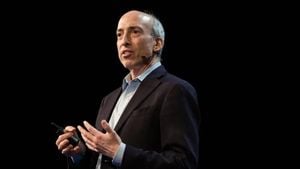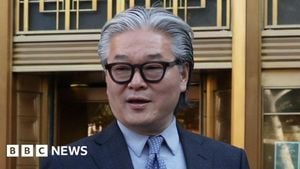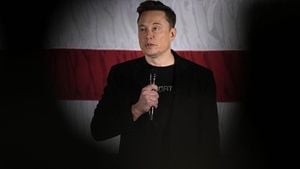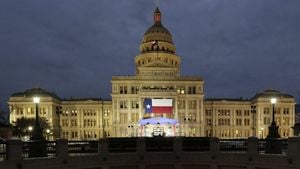Randy Boissonnault, Canada's former Employment Minister, resigned on Wednesday after intensifying scrutiny over his declarations of Indigenous ancestry. Over the years, Boissonnault had proudly identified himself as the great-grandson of a Cree woman, claiming he was adopted by a family with Cree heritage. Yet, following inquiries questioning the truth behind his family history, Boissonnault reluctantly acknowledged inaccuracies concerning his ancestry.
This controversy exploded following reports from the National Post, which revealed Boissonnault's co-ownership of a medical supply company. This company had identified itself as Indigenous-owned during unsuccessful bids for government contracts, prompting accusations of 'race-shifting'—a term used for those misrepresenting their heritage for personal or financial gain.
Responding to these allegations, Boissonnault clarified he was uninformed about his partner's claims about their business being Indigenous-owned. The Canadian government has set objectives to allocate approximately 5% of its contracts to Indigenous companies, leading to increased scrutiny of how these contracts are awarded and potential abuses.
An elected member of the Liberal Party since 2015, Boissonnault frequently referred to his adoptive family's Cree roots. His claims drew minimal attention until they were challenged recently. During a 2018 parliamentary session, he stated his mother was one-quarter Cree, and he has engaged publicly with Cree culture, even being granted a Cree name.
The controversy deepened as Conservative opposition members pressed for investigations relating to his business activities. Allegations surfaced claiming Boissonnault remained involved with his medical supply firm, potentially violating rules concerning conflicts of interest.
During what was undoubtedly a pivotal news conference held last Friday in Edmonton, Boissonnault expressed remorse for his previous statements about his background. He stressed he was still on the path to discovering his family's past, resigning from his cabinet position but maintaining his role as a member of Parliament.
Prime Minister Justin Trudeau confirmed the resignation, mentioning it aligned with Boissonnault's dedication to clear up his name amid the increasing criticism. Boissonnault's exit from cabinet not only leaves the government with one less minister but significantly impacts its representation from Alberta.
Veterans Affairs Minister Ginette Petitpas Taylor has stepped up temporarily to oversee Boissonnault's portfolio, which covers employment and workforce development as well as official languages.
Criticism from Conservative Leader Pierre Poilievre emphasized the Prime Minister’s initial support of Boissonnault, questioning how this resignation reflects upon Trudeau's governance.
Compounding the backlash was the House of Commons ethics committee probing whether Boissonnault had continued business dealings with Global Health Imports (GHI), the medical supply business he co-founded at the pandemic's onset. GHI has previously sought federal contracts, leading to concerns about ethical breaches for government ministers associated with businesses seeking government contracts.
Controversially, text messages revealed through legal proceedings indicated Boissonnault's previous business partner, Stephen Anderson, referred to him as a participant in business conversations with others, reigniting inquiry over whether Boissonnault was still involved with GHI. The public outcry intensified when the National Post reported GHI had falsely claimed to be Indigenous-owned when bidding for contracts.
Prior to resigning, Boissonnault faced increasing calls for his resignation following another article detailing his family's Indigenous heritage claims. He clarified his adoptive mother and brother belong to the Métis community, framing much of his historical claim as mistaken—a point he has since actively sought to correct.
The Liberal Party had previously positioned Boissonnault as one of its Indigenous representatives, yet he asserted he never filled out forms claiming Indigenous identity within the party. His claims were largely rooted in assumptions he had long accepted about his heritage, and he has since sought to amend public statements reflecting these misunderstandings.
Despite the rising heat from the political front, Boissonnault’s supporters have stated he genuinely believed his family to be Cree, and many have taken it upon themselves to defend him amid the backlash.
This scandal isn’t merely affecting Boissonnault; it raises broader questions about identity politics and how such claims are verified. With Canadian society continuing to evolve, particularly around conversations surrounding Indigenous rights and recognition, Boissonnault's resignation brings to the forefront the importance of integrity and transparency within public service.
Looking forward, Prime Minister Trudeau will need to reevaluate his cabinet composition and approach to Indigenous affairs as the focus shifts significantly back to appropriate representation and accountability measures for Indigenous sovereignty within the government.



